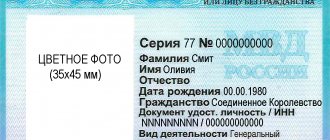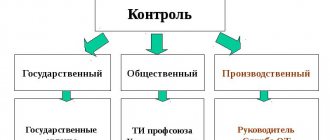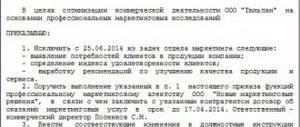Additional payment and allowance - what's the difference?
The law did not specify the differences between the concepts of “surcharge” and “surcharge”. The by-laws also did not clarify this issue. Analyzing current practice and current legislation, it is possible to use the following definitions.
• Surcharge
is an incentive payment to an employee for particularly valuable professional qualities and achievements. Such payment is the right, but not the obligation of the employer, and is applied by him at his own discretion, in accordance with corporate standards.
IMPORTANT! In some cases, an allowance may be provided for at the legislative level, for example, in accordance with Federal Law No. 79-FZ of July 27, 2004 “On the State Civil Service of the Russian Federation” - for length of service or for secrecy.
• Surcharge-
This is a compensation payment, the purpose of which is to pay for work under special conditions that differ from normal ones. As a rule, it is mandatory for the employer by law; its minimum size and procedure for application are guaranteed by the Labor Code of the Russian Federation.
It is advisable to establish precise definitions of these terms and the rules for their application in the local regulations of a particular employer. Otherwise, there is a risk of legal challenge to the application (or non-application) of a particular payment in each specific case.
Types of additional payments and wage supplements
Taking into account the above, payments can be divided into the following types:
- 1. Compensatory.
- 2. Stimulating.
In accordance with Art. 129 Labor Code of the Russian Federation:
- • compensatory payments
include additional payments and allowances for work in conditions deviating from normal, work in special climatic conditions and in territories exposed to radioactive contamination and other compensation payments; - • for incentives
- bonuses and other incentive payments of a stimulating nature.
Employers typically apply the following additional payments to wages:
- • for combining professions (positions);
- • for expanding service areas or increasing the scope of work;
- • for performing the duties of a temporarily absent employee;
- • for working under difficult and harmful working conditions;
- • for labor intensity;
- • for work at night;
- • for irregular working hours for car drivers;
- • for transportation of dangerous goods;
- • for leadership (team, unit);
- • for work on evening and night shifts;
- • for work beyond normal working hours.
- The minimum requirements for additional payments are established, for example, by Articles 147, 148, 151-154 of the Labor Code of the Russian Federation.
- The bonus, as an incentive payment
, is applied:
- • for high professional excellence;
- • for class;
- • for high achievements in work;
- • for performing particularly important work (for the period of its implementation);
- • for an academic degree.
In addition, by decision of the manager, a personal allowance can be established. Corporate allowances
may also have other names - bonuses, odds, bonuses.
Features of surcharges and wage supplements
Peculiarities
are determined by
what documents of the organization the payments are secured
. In accordance with Article 135 of the Labor Code of the Russian Federation, the remuneration system, including the size of tariff rates, salaries (official salaries), additional payments and allowances of a compensatory nature, including for work in conditions deviating from normal conditions, systems of additional payments and incentive allowances and bonus systems, are installed:
- • collective agreements,
- • agreements,
- • local regulations (for example, Regulations on remuneration, Regulations on bonuses, etc.)
The current remuneration system is also reflected in the staffing table, which indicates permanent allowances. Orders and instructions assign one-time compensation and incentives.
In small companies, as a rule, the main document establishing the system of incentives and compensation is the order and employment contract of a specific employee.
Each employee must be familiar with all local regulations related to the remuneration system by signature.
Payment procedure and rules
Who is entitled to payments, that is, the subject composition, the employer determines independently (in the case of compensation payments - in accordance with the requirements of current legislation).
Some standard grounds and payment conditions for bonuses can be identified:
- 1. Terms (payments can be indefinite, periodic, one-time).
- 2. Conditions for their payment (fulfillment of sales plan, budget, sales volume).
- 3. Requirements for the employee (no disciplinary sanctions, minimum period of work in the company).
- 4. Requirements for the preparation of related documentation (supporting documents, approval process, source of financing, forms of orders and instructions).
Payments to certain categories of workers (for example, those working in the regions of the Far North and localities equivalent to them, employees of educational and medical institutions, etc.) are regulated by separate chapters of the Labor Code of the Russian Federation, federal laws, laws of constituent entities of the Federation and other legislative acts.
In this case, the procedure established by the employer cannot worsen the employee’s position in comparison with that established by law.
Results
Now the main differences between a bonus and a premium are known. In addition, these two concepts often overlap. For example, an annual bonus or incentive in material equivalent can be called a bonus, and vice versa. In addition, employees are often pleased with other regular and irregular incentive payments. However, they do not replace each other and are used together, which further confuses the remuneration system.
The main thing that any working person should know is that any working conditions, including the amount of salary and incentive remuneration, must be specified in the employment contract. At the same time, the procedure and nature of payment of incentive remunerations (bonuses) are often specified in the collective regulations on bonuses. These two documents will help you understand what the employee’s income level should be for the selected period and for certain performance indicators.
Who is entitled to increased pay?
Payment under special working conditions for workers under the Labor Code of the Russian Federation has increased values in a number of cases. These include the following circumstances: work in heavy/dangerous production - during this work a person can get occupational diseases and cause irreparable harm to his health; work in special climate conditions.
The general rule on increasing salaries for such employees is enshrined in Art. 146 Labor Code of the Russian Federation. The purpose of the surcharge is discussed in more detail in Art. 147, 148 Labor Code of the Russian Federation.
Special working conditions - what are they?
In order not to violate the law, managers must clearly understand who works in the enterprise under special conditions and who works under normal conditions. After all, higher pay is provided for the former.
- Operation under normal conditions has the following characteristics:
- working day duration – 8 hours;
- Day shift;
- working week – 40 hours;
- weather conditions are normal;
- work at your place of residence, and not in a remote area; full compliance with sanitary standards.
It turns out that failure to comply with these requirements makes working conditions special.
. True, receiving a higher salary on an ongoing basis is possible if such factors operate regularly. That is, the work week is longer than normal, as is the length of the shift; the employee can work the night shift.
If we rely specifically on labor legislation, we can understand that special conditions are accompanied by the emergence of some unfavorable factors. These may be working conditions at the enterprise or climatic conditions. In fact, such employees work in harmful, dangerous and abnormal conditions. In Art. 149 of the Labor Code of the Russian Federation also contains a list of conditions that are not considered normal, but are only temporary in nature.
These include:
- -work on weekends and holidays;
- -increasing the length of the working day (for example, work needs to be completed by a certain deadline, which is why the employee has to stay late);
- -work on the night shift;
- -internal part-time work.
In this case, we are not talking about increasing the rate. A person usually receives additional payment for additional functionality or hours worked.
Payment procedure
The employer determines the order in which he will issue additional funds, individually, but in accordance with the Labor Code and other regulations.
Official documentation may stipulate the following conditions for the provision of allowances:
– terms – they can be indefinite, provided once or regularly;
- features of the payment - under what condition the increase will be provided, this can be the successful implementation of the plan, or a significant contribution to the work of the company;
– requirements for an employee - in some cases, management may impose requirements on a subordinate in the form of no disciplinary penalties or absences from work, as well as a minimum period of employment in the position;
– documentation – the enterprise may approve separate approval processes and paperwork, which are drawn up when additional payments are provided.
If additional payments are regulated by legislation, then the employer is obliged to follow them.
For example , for those employed in the Far North, medical and educational organizations, as well as in positions characterized by risks, all information is prescribed in the laws of the Russian Federation and is guaranteed by them.
When an employee receives an additional payment, personal income tax is levied on it, and the Ministry of Finance of the Russian Federation recognized this as a legal action in the case of compensation for harmful working conditions.
Thus, the additional payments will also have to pay government fees, unless the person is in a preferential category or has other rights to a tax refund.
When is work under special conditions paid?
Unfortunately, not all employers are willing to pay employees additional amounts for their work under special conditions. If the head of the enterprise does not increase the salary, he is violating labor laws. As a general rule, he should:
- -increase the salary if special conditions are permanent;
- -provide an additional payment if the current conditions are temporary.
In both cases, changes in pay must be officially reflected. In the first - in the collective labor agreement, additional agreement. In the second case, a separate compensation order is usually issued.
Difficult working conditions
If a person in the course of performing work duties has certain risks to his own health, then the employer must somehow compensate for this. But not every job is harmful/hard.
The list of such professions is very extensive. This list includes works:
- -underground;
- - with prisoners in custody;
- - in logging;
- -in ports for unloading/loading;
- -driver of trucks, public transport, etc.
Some working conditions are called special only for women, since they have to do hard physical work. For example, this is practiced in the textile industry and the agricultural sector (if a woman drives tractors and other special equipment).
Registration of a personal allowance
IMPORTANT! A sample order for establishing a personal allowance from ConsultantPlus is available here
The employer is not obliged to include the terms of the personal bonus in the employment contract, since this is an incentive payment. But since this is still part of the remuneration, it must be documented.
To do this, you need to regulate the personal bonus in a collective agreement or in the Regulations on remuneration and be sure to refer to this document in the text of the employment agreement (Article 57 of the Labor Code of the Russian Federation).
IMPORTANT! If the employer does not include provisions on the bonus in local documents, paying it without registration, he is not threatened with legislative liability. The only thing that can serve as a disadvantage for the employer in such a situation is that unreasonable payments cannot be attributed to expenses that reduce the tax base.
Petition and order for personal allowance
How else can you arrange the payment of a personal allowance, if not through a separate document? This may be necessary when the nature of the payments is not systematic, but one-time or calculated for a certain period. In this case, it is advisable to draw up a memo (petition) from immediate management to a higher one who has the authority to assign a bonus. This could be the general director, financial director, head of the personnel department, chief accountant, etc. In the text of the note, in addition to the mandatory details of business documents, you should indicate:
- arguments justifying the assignment of a bonus to a specific employee or their group;
- the expected amount of additional payment;
- at what expense is the premium supposed to be assigned (for example, from the wage fund or by increasing profits from sales, etc.);
- validity period of additional payments.
ATTENTION! It is not customary to formalize permanent allowances using memos. After the expiration of the specified period, you can again apply for a supplement. With this kind of document you can request the appointment, increase, decrease, extension or cancellation of a personal payment.
The compiled memo, signed by management, will become the basis for preparing an order for the calculation of the allowance. The execution of this order can be in any form. It is important to correctly motivate the appointment of additional payments, since their feasibility from a production or economic point of view is a guarantee that these costs are included in the cost of production, which is very strictly checked by tax authorities.
After issuing an order to assign an allowance, the employee must be familiar with it, which is confirmed by a personal visa (this procedure is common for any orders).
Amount of wages due
In Art. 146 of the Labor Code of the Russian Federation talks about the need to increase wages due to special working conditions and climatic features. There are no specific formulas for calculation in the legislation. However, Art. 147 of the Labor Code of the Russian Federation states that for work with harmful and dangerous working conditions, the amount of payment should be increased by no less than 4% of the payment under normal conditions. At the same time, the employer must take into account the opinion of the trade union body when establishing the amount of payments and be guided by Art. 372 Labor Code of the Russian Federation. The legislation does not limit the maximum amount of excess. It all depends on the awareness of the employer and the financial capabilities of the enterprise. Sometimes the excess amount reaches 100% of the salary.
The established additional payments must be reflected in official documents - the employment contract. Payment conditions for work with special conditions are also often specified here. This could be: additional payment as a percentage of the salary; additional payment for performing additional functions in absolute terms (but then its amount is usually prescribed for each specific case separately, in agreement with the employee).
If we are talking about permanent work in abnormal conditions, then the conditions for increasing wages are established after certification of workplaces. Using this procedure, the employer can adequately assess working conditions, namely:
- -harmfulness;
- -heaviness;
- -intensity;
- -presence of associated factors (chemical, industrial, etc.).
When increasing wages, we must not forget about the current regional coefficients and other allowances due to the employee under the employment contract. The salary is set taking into account increases for special working conditions, but it does not include the regional coefficient.
Types of awards
Depending on the classifying characteristics, the bonus is:
- Individual or collective. That is, the amount is paid either to one employee or distributed to a team of employees. In the latter case, the bonus of each employee is proportional to his contribution to the common cause, and the amount of remuneration is determined by the boss.
- According to the calculation formula. Two standard schemes are used - a fixed amount or a percentage of profits or wages.
- By frequency. In our understanding, a bonus is a monthly remuneration. But it can also be quarterly, annual, semi-annual, or paid upon completion of a transaction or object.
- For the intended purpose. Monetary remuneration can be awarded both for the timely and impeccable performance of work duties, and for the completion of special individual or collective tasks. The first ones are stimulating, the second ones are incentive ones.
- According to the regulatory document. There are bonuses paid in accordance with an employment agreement or any other internal document of the enterprise. But there are also remunerations that are paid according to the individual decision of management.
- By type of line in the accounting report: 20 – line for key employees, 26 – for management personnel, 84 – from retained earnings, etc.
We must not forget about special bonuses - for the employee’s anniversary or for a certain length of service, etc. Documentation for receiving the bonus is the responsibility of the employer.
What is the difference between a bonus and a premium? Now we already know that a bonus is a legal term, and there is no such concept as a bonus in the Labor Code of the Russian Federation. In order to find out the difference between a bonus and a bonus, you need to get acquainted with another term - incentive payments.










